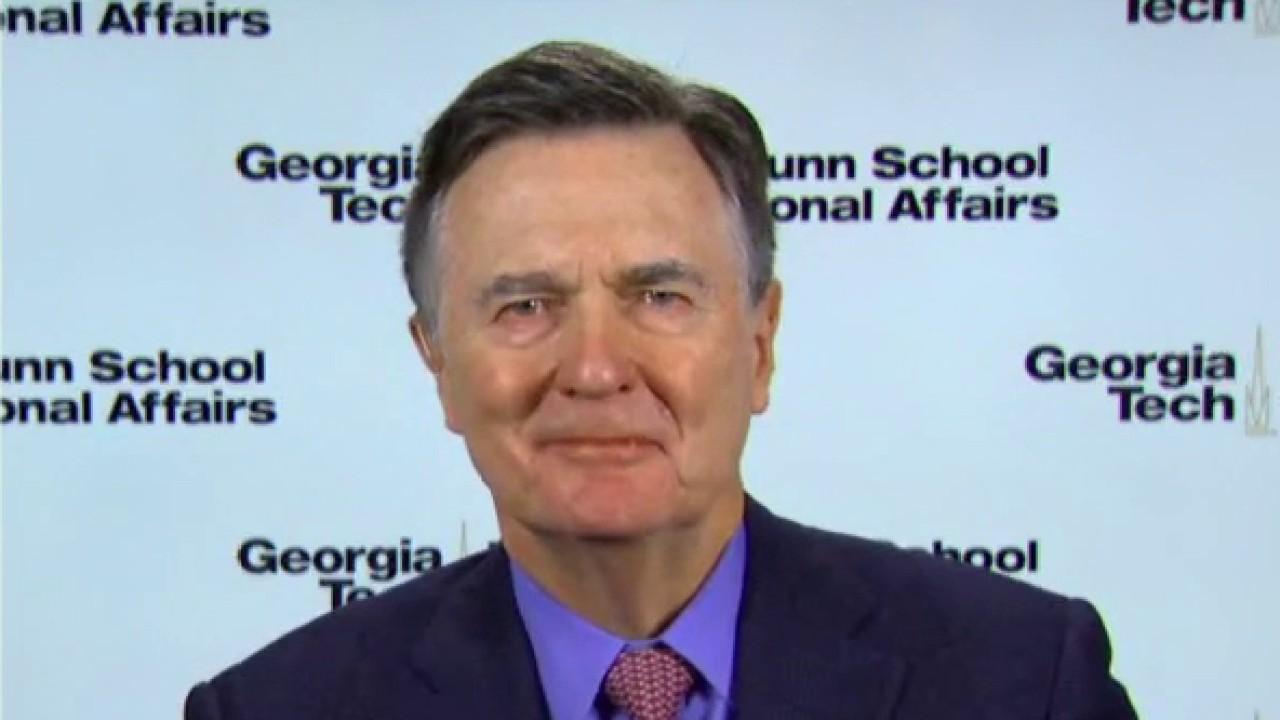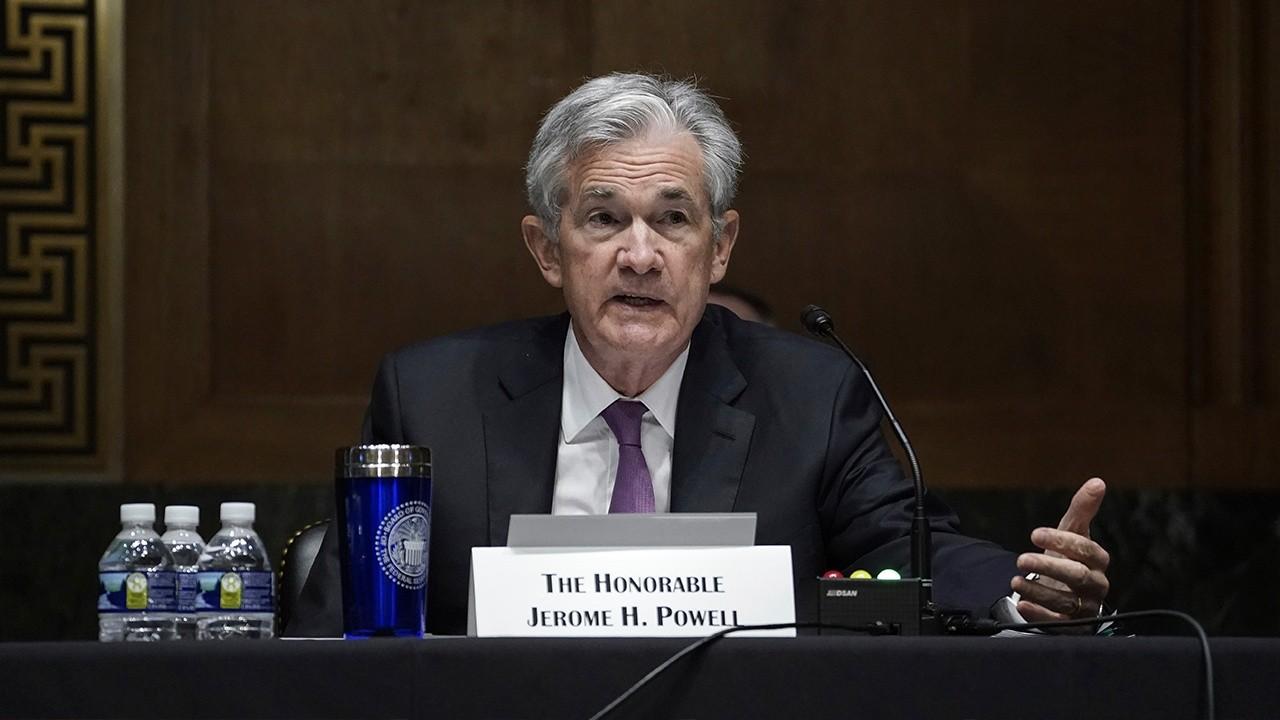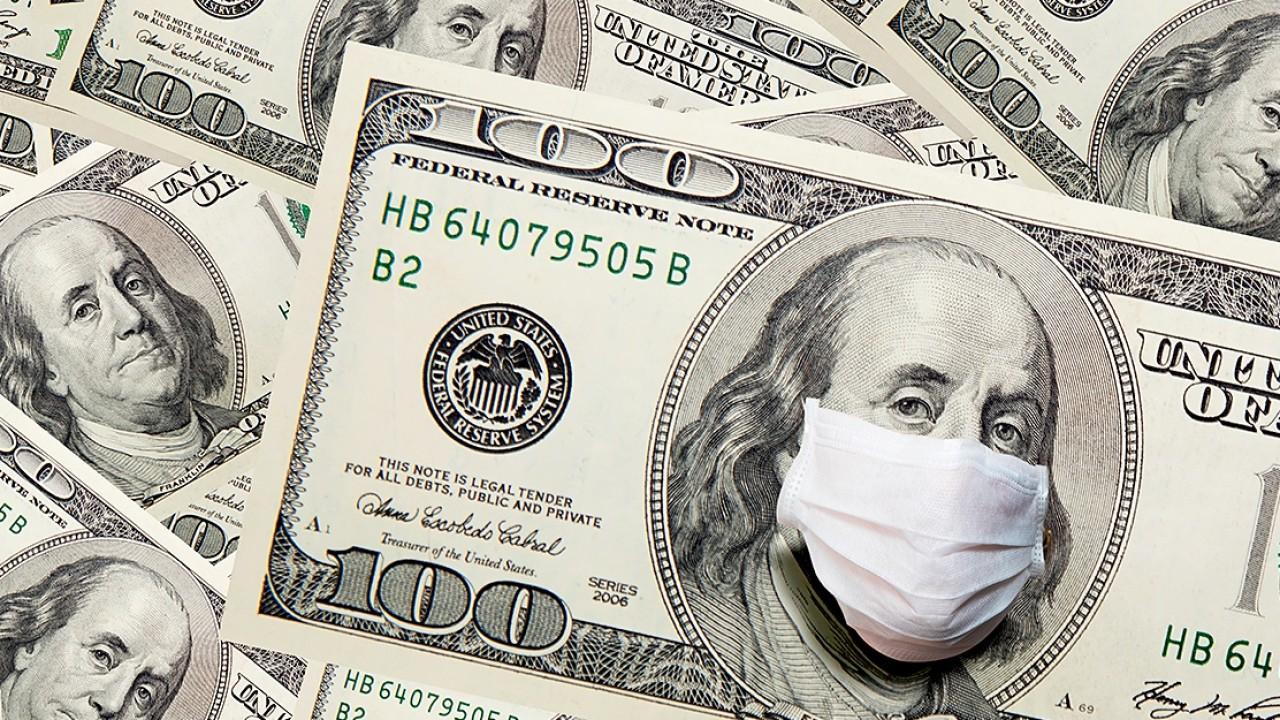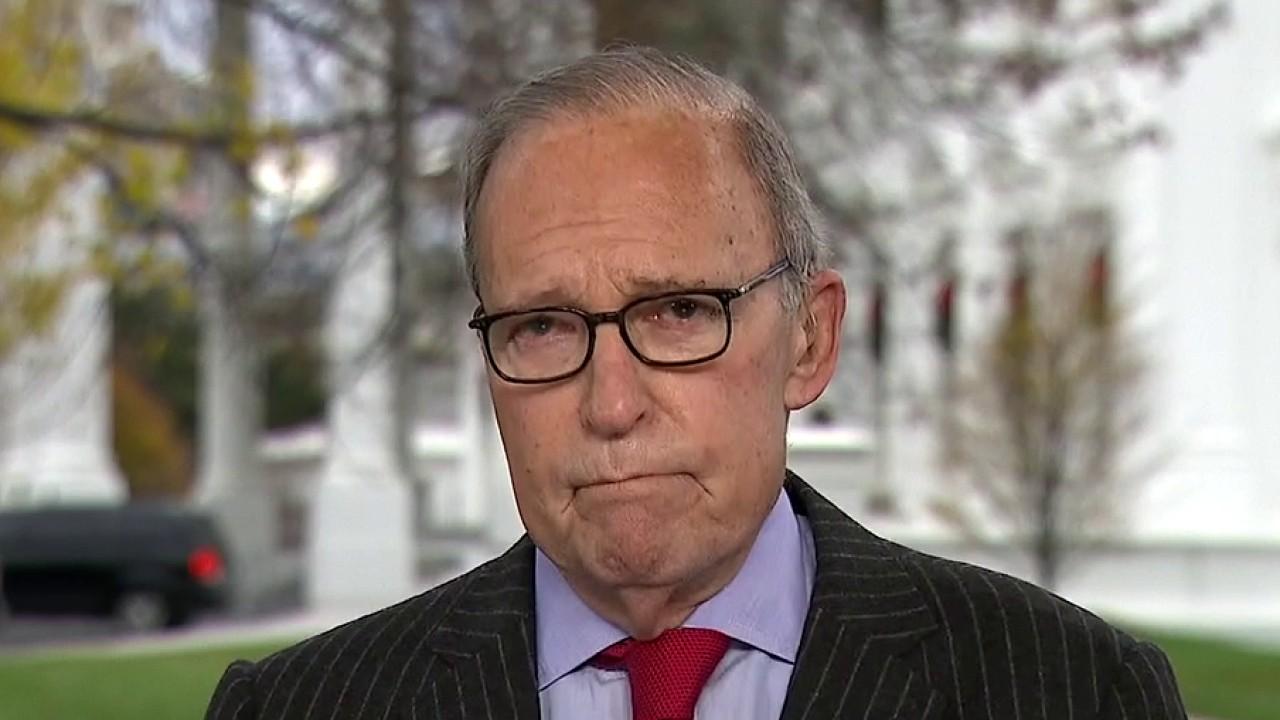More coronavirus 'relief' needed to aid economic recovery: Former Fed president
Former Fed official Lockhart argues more government aid will help ‘consumption in certain groups'
Former Federal Reserve Bank of Atlanta President Dennis Lockhart told “Mornings with Maria” on Thursday that he believes additional coronavirus relief measures are needed to help “consumption in certain groups that have been very hard hit by the economic downturn in the second quarter.”
“I think stimulus would help,” Lockhart told host Maria Bartiromo, noting that he prefers to use the term “relief” versus stimulus because “we’re really in a relief kind of mode at the moment.”
He said “relief” from the federal government “certainly would help” with the economic recovery amid the coronavirus pandemic, specifically those people who are unemployed and are “facing problems such as eviction from apartments.”
GET FOX BUSINESS ON THE GO BY CLICKING HERE
Lockhart then acknowledged that he believes the United States is “entering into a more optimistic period,” citing coronavirus “vaccine-based optimism.”
Moderna is the latest contender to announce the filing of emergency use authorization for its coronavirus vaccine.
The company said it expects to have up to 20 million doses available by the end of 2020, and up to 1 billion doses available globally in 2021. The shot, which is a two-dose jab, would be ready to ship within weeks of approval, according to the company.
Pfizer has already filed for the emergency authorization and the FDA plans to decide early this month. AstraZeneca has also indicated that it is preparing to file an emergency use authorization.
“Business investment is likely to begin to pick up as businesses can see beyond the COVID period to a period in which the economy will be free of this or largely free of it and in a recovery mode,” Lockhart said.
He noted that he believes business investment will pick up from the housebuilding sector, which is “certainly strong.”
Lockhart also pointed out that based on current real estate prices, it is evident that “houses are in short supply.”
Demand in the U.S. housing market is surging, but affordability is likely to be a challenge for some prospective buyers as the number of homes for sale lags.
Existing-home sales grew for the fifth straight month in October to a seasonally-adjusted annual rate of 6.85 million, an increase of 4.3% from the prior month and 26.6% from the year before, according to data from the National Association of Realtors (NAR).
NAR also noted that total housing inventory declined to a record low of 1.42 million, which is enough to last 2.5 months at the current sales pace and that the median existing-home price was $313,000, nearly 16% more than the year before.
This week, Federal Reserve Chairman Jerome Powell warned that the pace of the U.S. economic recovery from the coronavirus pandemic has moderated in recent months and said the outlook remains "extraordinarily uncertain" amid a recent surge in infections across the country.
In congressional testimony Tuesday, Powell called the rise in COVID-19 cases "concerning," and said it could "prove challenging for the next few months."
"As we have emphasized throughout the pandemic, the outlook for the economy is extraordinarily uncertain and will depend, in large part, on the success of efforts to keep the virus in check," Powell said in prepared remarks for the Senate Finance Committee, where testified alongside Treasury Secretary Steven Mnuchin as part of the panel's oversight responsibilities required under the $2.2 trillion relief package Congress passed in March.
Mnuchin touted continued economic growth as the country recovers from being shut down earlier this year due to the pandemic while warning that new restrictive measures are impeding that progress.
US ECONOMY ADDED 638,000 JOBS IN OCTOBER AS UNEMPLOYMENT FALLS TO 6.9%
“The historic, bipartisan CARES Act provided the economic relief critical to supporting our robust recovery,” Mnuchin said during his testimony. "Additional economic shutdowns, however, continue to impair this remarkable progress and cause great harm to American businesses and workers.”
Mnuchin said his prediction for a strong third quarter came true, as the U.S. saw gross domestic product growth at an annual rate of 33.1%. He recognized that “there is more work to be done” and suggested the best approach would be a limited new relief bill in conjunction with the nearly half a billion dollars remaining that was appropriated for the CARES Act.
The scope of the next coronavirus package has been a point of partisan disagreement for months. House Democrats passed their $3 trillion HEROES Act in May then passed a slimmer $2.2 trillion version in October. While the Democrats’ bill includes money for state and local governments, Republicans have been pushing to focus on businesses.
Lockhart spoke with Bartiromo on Thursday, two days after the Atlanta Federal Reserve raised its estimate for real GDP growth (seasonally adjusted annual rate) in the fourth quarter of 2020 to 11.1 percent on December 1, up from 11.0 percent from the week before. On Oct. 30, the Atlanta Federal Reserve estimate for real GDP growth was 2.2%.
On Thursday, Bartiromo pointed to her interview with White House National Economic Council Director Larry Kudlow the day before where he mentioned the increased estimate for GDP growth from the Atlanta Federal Reserve.
Kudlow also pointed to economic data during the interview on Wednesday saying shipments and durable goods orders, a closely watched proxy for business spending plans, are “strong, which he noted “creates jobs,” higher wages and “more gross GDP output.”
Orders for durable goods, items expected to last at least three years, edged up a slight 1.3% in October after a 2.1% gain in September, the Commerce Department announced last month.
Kudlow also pointed to housing data saying, “we are still very much in a housing boom.” He noted “mortgage rates are actually slipping down a little bit at the long end” and that inventories are low and will “have to be rebuilt.”
“That process has just barely begun to meet the demand for automobiles and other consumer goods,” Kudlow said on Wednesday, stressing that he sees “a very strong economy.”
“The Atlanta Fed GDPNow model is looking for 11% in the fourth quarter. That’s their estimate, not ours,” Kudlow added. “I’m just saying though, that shows you how far they’ve come.”
Bartiromo asked Lockhart if he thinks “we’re going to see an 11% growth number in the fourth quarter” as predicted by the Atlanta Fed.
“Yes, but I think you have to look at that in some context,” he responded. “The third quarter was 33% annualized growth so slowing to 11% is a kind of flattening out of a recovery that’s very real.”
US ECONOMY GROWS AT RECORD 33.1%, ACCORDING TO SECOND ESTIMATE
“If I look ahead to 2021, I think we could have two economies; a relatively slow or rocky economy in the first half and a very strong economy in the second half,” Lockhart continued, adding that “as always, it depends so much on what happens with the coronavirus and the public health situation.”
CLICK HERE TO READ MORE ON FOX BUSINESS
Fox Business’ Megan Henney, Ronn Blitzer and The Associated Press contributed to this report.























